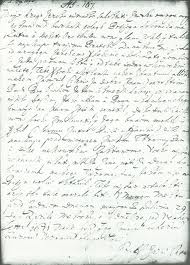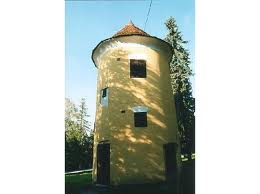CROATIAN PETAR ZRINSKI AND KRSTO FRANKOPAN
7th rujna 1566th
Proved himself heroically died defending Siget, fortress in southern Hungary, The heroic battle is recorded in all the annals of 16th century European history The anniversary of the death of Nicholas Zrinski Siget-siege Siget - proboj.Turci Siget occupied fortress in southern Hungary, which he defended the crew of the Croatian ban Nikola Zrinski Siget, former commander of Medimurje Hungary and south of the Danube. After a nearly month-long siege, which has prevented numerous Turkish army under the command of Sultan Suleiman the Magnificent in the march on Vienna, Nicholas Zrinski on this day with the remaining defenders broke out and destroyed the fort heroically died. After George Horvat cannon made the passage through the Turkish group at the bascule bridge, headed by Nicholas Zrinski is a breakthrough in the works. First shot from the pistol, and then the Turks continued to cut down the sword. The unequal battle, the Turks struck out three times Zrinskog arquebus (gun powder), twice in the body and once in the head. When he fell from his horse, surrounded by his knights to defend it. Among others, killed the nobles Papratović Wolf, Nicholas Sparrow hawk, Peter Lawrence and Patačić Juranic. Dead Nikola Zrinski Janissary commander had his head cut off. His corpse was buried Mustafa fork of Banja Luka, a former prisoner of Nikola. The head of the Croatian Ban, one of Europe's greatest heroes of that time, Vizier Mehmed Pasha Sokolovic sent his cousin Buda pasha Mustafa. This it is, however, as a warning sent by the Imperial General Egon Salmon. In the camp of the imperial army at the head of Gyuri Nicholas Zrinski delivered on 14 September Nikolina the 18th head September took his son George IV., son Balthazar Batthyanni and everyone Francis Tahy. They brought in Cakovec, and was buried in a family tomb in the complex Zrinskih Pauline monastery in St. Helena, near the tomb of Nikola's first wife Catherine of Notes.Fran Krsto (Bosiljevo, March 4 1643rd - Wiener Neustadt, 30 April 1671)., Croatian nobleman and poet Catherine Zrinski sibling and brother in law Zrinskog, with whom he was one of the organizers of the conspiracy of Croatian and Hungarian nobles discontented policy of the Court of Vienna, which is mantled humiliating peace treaties with the Ottomans, mostly at the expense of the Croats and Hungarians. Acknowledge excellent, the youngest son of Karlovac General Vuk Frankopan Cross, according to some sources, was born in Karlovac fourth March 1643rd After the death of his father sent him to school in Zagreb, where he attended Jesuit High School. He lived in a boarding school for foreign students in Habdelićeva Street, and the extra classes he attended the Jesuit College, where he acquired a preference for books and writing. In order to continue their education and upbringing goes to Italy where he studied Italian poetry and introduced the distinguished Roman patrician Julian de Nar, which is also married. Returning to his homeland he entered his father's footsteps and became Ogulin captain and participated in a great battle with the Turks at Otocac. Nobleman of high artistic talent, a poet born, for life is revealed only one literary work, a poem, "Elegia" (1656.). Today's researchers believe that part of his collection "Gartlic to truncate the hour," which was organized in the last days of life as a prisoner in Wiener Neustadt awaiting execution, until recently known only partially, and contains songs written in a cheerful young age, in days when the translated into Slovenian language Moliereovu comedy "Georges Dandino," while only sad resulting in a dungeon. Currently holding a collection, knowing that it looks horrible and near death in the eye, not to sort them chronologically rather than mixed. The tragic fate of the poet followed the fate of his poetry, collected in the volume "Gartlic to truncate the hour." They had to go for two centuries until it was discovered the former librarian of the Vienna Court Library Ivan Kostrencic, he was the first one and disclosed, and it immediately in the book (Kindergarten, 1871.), But only in the selection, because some of these songs, those of the erotic "Gartlica" and cycle "Zganke," the boldness of expression were too challenging and would not violate the moral sense of the reader. Although the appearance of the book was litararna sensation, though none of the critics at the time, nor Vatroslav Jagic, has recognized the value in it. Lacked substantial scientific and theoretical knowledge, and receptive, experiential, emotional assumptions (I Jagic, though very creditable philologist, is not, nor the majority of Croatian linguists reached the level of aesthetics). The claim that the language Frankopan "mixed " could not even get to the correct aesthetic judgment. Because this "mix " was not a specific defect, but all feature writers Ozalj circle, which unfortunately did not give any harsh fruit could give, because at the time of the codification of Croatian language model was Ivan Gundulic, so Frankopan, the idiom of poetry tronarječna from this discourse functioned as a deviation from the central flow of Croatian language. Only the more recent historical linguistic research, particularly Joseph Vončina, fittingly described and evaluated Frankopanovog uniqueness and flexibility of artistic expression.












Nema komentara:
Objavi komentar